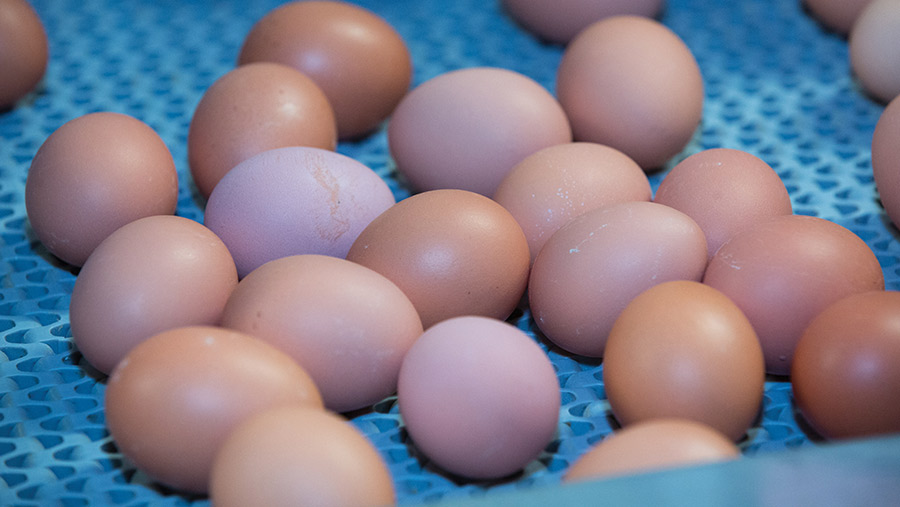Editor’s view: Decline in food production a warning to all
 The egg sector has been among the worst affected by energy price rises © Tim Scrivener
The egg sector has been among the worst affected by energy price rises © Tim Scrivener This week we bring you a slew of advice on minimising the effect of sky-high energy bills.
This is a pressing problem given that 44% of food producers predict that they will reduce their output in the next 12 months – as highlighted in our exclusive research.
See also: Editor’s view: Meat trade duping us daily and that must end
Yet we also acknowledge that even a slew of on-farm changes would probably not have shielded you completely from the effects of what has happened in the past year.
At a national level it highlights a problem – while each of you as individual producers are thinking rationally about the right amount of food you can afford to produce, scant attention is being paid to our total output.
As has been exhaustively reported over the past year, shortages in certain key products could have been avoided had retailers paid attention to well-informed farmers and industry bodies.
Given these failings, and farming’s catastrophic loss of confidence, our national and local governments should think long and hard about whether they are comfortable with the marketplace being the only driver of production here.
I feel obliged whenever these issues are being discussed to reassert that it is entirely proper that price drops exist to correct overproduction. We don’t want to produce more than we need to.
And no farmer should feel a moral obligation to be a food producer if they are not also being adequately rewarded for their work. We are not charities.
But if the role of government is to do anything, it should be to prevent problems in one sector or industry taking a toll on the population as a whole.
If a section of farmers have concluded they can’t afford to produce food, and a section of consumers are realising they can’t afford to buy it, then it would appear that moment has already arrived.
Targeted intervention, not blanket support, is needed.
For the most energy-intensive producers, the Energy and Trade Intensive Industry scheme, administered by Grant Shapps’ newly formed Department for Energy Security and Net Zero, is a proportionate first step that the government is ignoring for no good reason.
Energy Special
Read all the articles in our Energy Special:
Food fraud investigation: An update
The story we published last week on widespread food fraud and food safety issues in parts of the meat supply chain sent shockwaves through the mainstream media and led to questions in parliament.
It would have been much better had these issues never happened, but now that they have, they must be confronted.
And by tackling them head on, there is an opportunity for actors throughout the supply chain to take credit for working on behalf of consumers to drive out the culture that permitted these alleged crimes to happen.
This is why this week we are launching a new campaign called Meat: Our Expectations that seeks to give a platform to those that have that intention.
We already have some recommendations for what needs to change, based on the conversations we’ve already had with industry.
But now we want to hear from as many other people as possible about what needs to be done.
Farmers will be among the worst affected should a supply chain needlessly fall into disrepute, so it is vital that every effort is made to avoid this happening.

